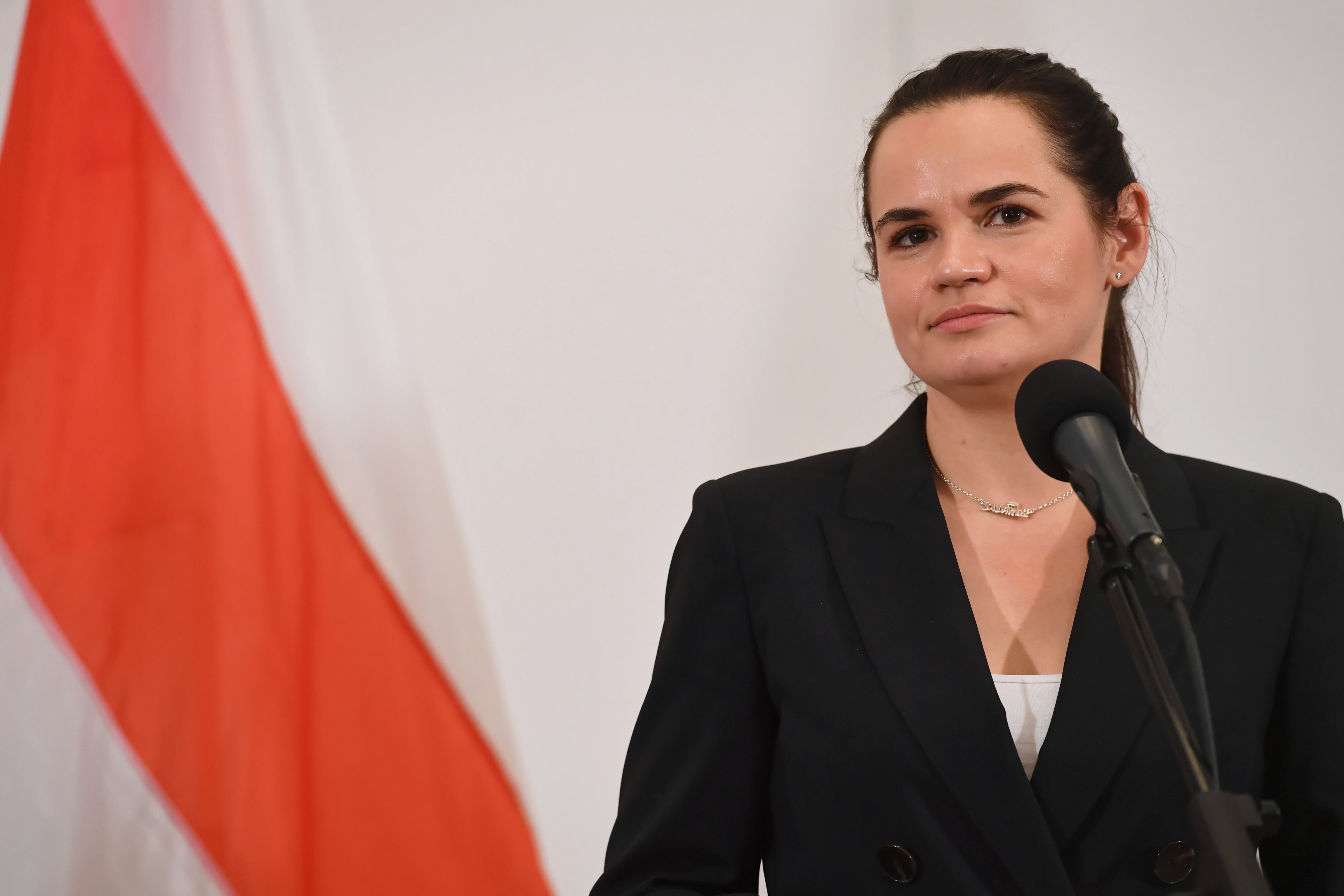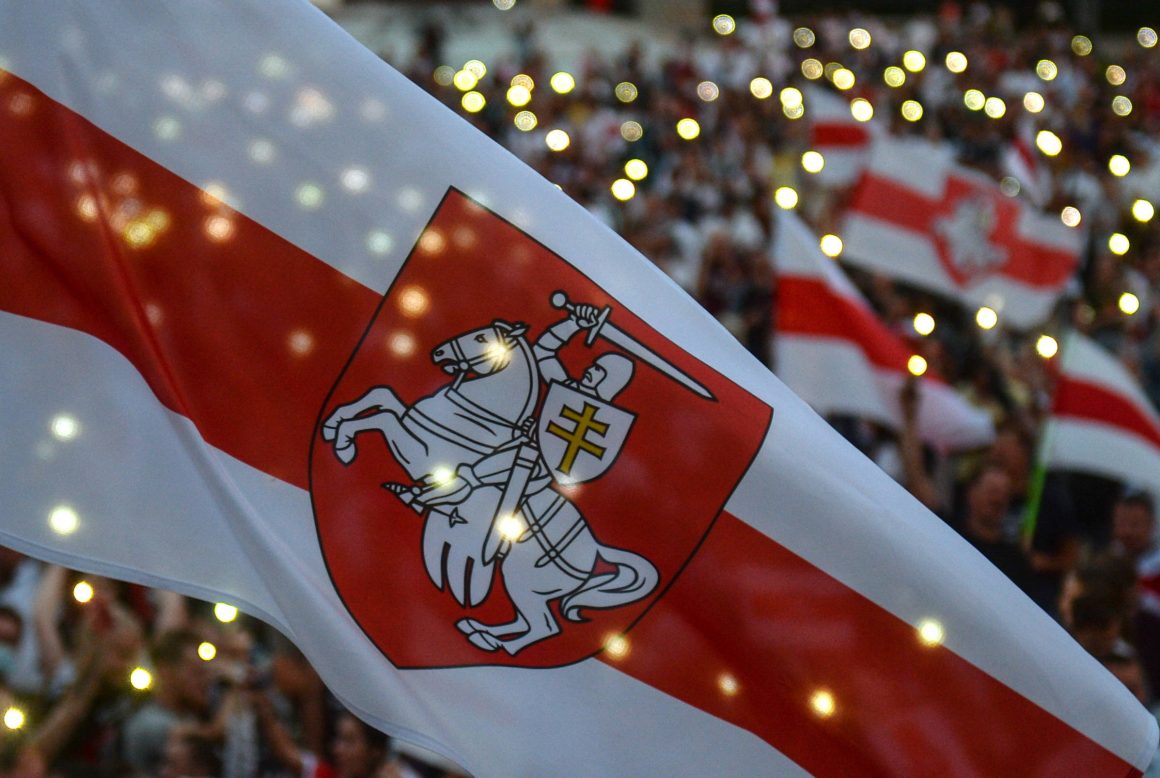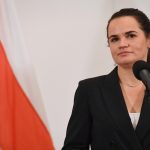THE WARSAW INSTITUTE REVIEW
Date: 29 October 2020
Belarus: the war for the Russian world
The presidential election in Belarus on August 9, 2020, was officially won by incumbent President Alexander Lukashenko. However, there is no doubt that this election was rigged – which triggered protests on a scale previously unseen in an independent Belarus. For two weeks, there was a high chance that Lukashenko would be overthrown. These hopes were put on hold because the Kremlin finally supported the Belarusian dictator, who then successfully managed to control the protests. Despite this, Alexander Lukashenko has lost the support of the majority of the country’s citizens and can only remain in power by using force. The developments of the crisis in Belarus are of key importance for all post-Soviet states. Overthrowing Moscow’s autocratic ally would represent a disaster for Russia and a bad example for others. As of today, Belarus is a fundamental element of the so-called ‘Russkiy mir’ (‘Русский мир’, lit. ‘the Russian world’) – a civilization area centered around Moscow and united not only by political, military, and economic ties, but also by autocratic methods of governing and lack of freedoms characteristic for developed democracies.

Author: Grzegorz Kuczyński
An outburst of dissatisfaction with Lukashenko in Belarus should not come as a surprise after the rigged presidential elections in August this year. Already during the campaign, unprecedented signs of large-scale social mobilization began to appear. President Lukashenko, just like other rulers, underestimated the influence of the coronavirus pandemic on the attitudes of Belarusians. It was COVID-19, or more precisely, the methods of the Belarusian regime to respond to the pandemic, that changed the mindset of a large part of Belarusian citizens towards the authorities and towards Lukashenko himself. It seems that the dictator has neglected the potential of the protest. First of all, he rigged the election results on a scale that even many of his supporters were unable to accept. The official results were like a blow to the Belarusian society. Secondly, the regime believed that the scenario would be repeated, as in many previous elections, and that in one day or two, at most, it will be possible to brutally suppress the spontaneous social protests in Minsk. However, this time, the situation turned out to be different, since the attacks of the police forces caused even greater outrage and resulted in hundreds of thousands of people taking to the streets. Never in the history of independent Belarus has there been so many demonstrators taking to the streets of the country’s cities.
For several days, it seemed that Lukashenko’s power was actually at stake, especially because Russia has been very cautious in its reaction to the crisis. After a change of tactics, Lukashenko finally managed to control the situation. He chose to avoid brutality and violent repressions until the scale of the protests finally began to decrease. The regime then cautiously (but systematically) tightened its policy towards the protesters – especially towards the leadership of the opposition. Lukashenko was already much more self-confident at this point – after all, he already had Moscow’s support. Out of all countries in the region, Russia is the main external player in this crisis; it is also a country that is most interested in the developments in Belarus.
Why is Belarus so important to Russia?
Russia’s stance on the events in Belarus is influenced by a number of interrelated, sometimes contradictory geopolitical and internal issues. Yet what is most striking (and what makes the current situation different from, for example, two revolutions in Ukraine) is a whole range of similarities between Russia and Belarus’ regimes, making it impossible for the Kremlin to ignore the crisis of the Lukashenko regime. Vladimir Putin, just like the Belarusian dictator, has been ruling the country for many years (Lukashenko for twenty-six years and Vladimir Putin for twenty years). The models of government in both countries are based on a strong centralization of power and constitutional powers of the president and, importantly, on Lukashenko and Putin’s personal political powers. In both cases, the informal relations between the leaders and their subordinates, as well as within the governments, are more important than formal dependencies. That is why Putin can draw conclusions from the Belarusian crisis also for himself. Based on Lukashenko’s mistakes, he can take steps to avoid problems similar to the ones faced by the Belarusian leader. However, it is not only the ideological and political similarities between the two regimes that are at issue.
Belarus is of great strategic importance to Russia, particularly because it serves as a buffer separating Russia from NATO’s eastern flank, therefore pushing the potential threat away from Moscow. Belarus is geographically the bridge through which the Polish, French, or German armies headed for Russia. But it was also through this area that the Russians marched to conquer Europe – both in the Tsarist and Soviet times.
Belarus is a key ally of Russia in its western direction. It is a loyal member of Moscow-dominated post-Soviet military, political, and economic structures such as the Union State of Russia and Belarus, the Collective Security Treaty Organization (CSTO), the Eurasian Economic Community (EAEC), and the Commonwealth of Independent States (CIS). In military terms, Belarus is, in fact, part of the strategic area of Russia. The Belarusian army is de facto subordinated to the Russian Western Military District. The Belarusian army is trained in Russia, while the Russians have strategic military facilities in Belarus.
Keeping Belarus in the Russian sphere of influence is also vital for Moscow because of the Kaliningrad region. Should the forces striving for integration with the West or even advocating a neutral status of Belarus come to power in Minsk, it would significantly deepen the isolation of the westernmost region of the Russian Federation. Moreover, it would also seriously complicate Moscow’s military plans, thus making it lose its advantage of threatening NATO with occupying the Suwałki Gap, a narrow stretch of land connecting Poland and Lithuania and dividing Belarus and the Russian exclave. In the event of a war with NATO, such as the Baltic States invasion, this would be the only land-based connection between Lithuania, Latvia, and Estonia with the rest of the Alliance. Thus, if Belarus ceased to be a military ally of Russia and part of Russia’s military territory, Moscow would lose part of its strategic advantage over the Baltic States. This means that the weakening of Russian influence in Belarus would strengthen the security of Estonia, and especially Latvia and Lithuania, and reduce the risk of the military conflict started by the Russians in this part of Europe. Not only Western, but also Russian and Chinese analysts agree that in case of war without the involvement of Belarus, the Russians would manage to keep Kaliningrad for a maximum of two weeks, and probably even shorter.
The Russian plan for Belarus probably predicted that Lukashenko would win the election. However, he would be very weakened by the good result of the opposition – and thus more likely to make concessions concerning the integration process (a matter envisaged in the documents establishing the Union State). This integration is to be multidimensional and aimed at the real incorporation of Belarus by Russia.

The scale of the protests surprised the Kremlin – just like it surprised Lukashenko. What is important, Russia decided not to rush with declarations of support for the regime in Minsk. Moreover, Putin was not the first leader who congratulated Lukashenko after the election. China, Kazakhstan, and even Ramzan Kadyrov, the head of the Chechen Republic, came ahead of him.
Some Russian politicians, on the other hand, were then openly attacking the Belarusian regime. Vladimir Zhirinovsky directly accused Lukashenko of rigging the election. What is more, the Russian state media reported the results of the elections in Belarus with caution. While the threatened Lukashenko was strongly advocating for a clear declaration of the Kremlin, Putin held back for a long time, choosing first to observe the course of events. It was not until the last days of August (August 27, to be precise) that Russia declared the preparation of the “reserve of the Ministry of Interior officers,” which could help Lukashenko, if necessary. Later, during the fifth phone call since the beginning of the crisis, Putin invited Lukashenko to visit Moscow. The visit finally took place on September 14 in Sochi, where the Belarusian dictator received confirmation of a 1.5-billion-dollar loan. The decision to provide clear support was motivated by the Kremlin’s concerns about the weakening of influence in Belarus and the impact of the peaceful revolution on Russia’s internal situation.
The fear of the “Belarusian plague” became even greater as another source of the “democratic epidemic” threatening the Kremlin had emerged in Khabarovsk Krai. In the Russian Far East, thousands of people took to the streets throughout several weeks to protest against removing a popular local governor from office and pressing charges against him. Two phenomena, so characteristic of the later events in Belarus, first appeared in Khabarovsk. The first one was the peaceful demonstrations and the effective avoidance of yielding to the provocations of the authorities. The second was the mass scale of the manifestations, and the demonstrations so large that it was impossible to suppress them by force. Putin understood that he should stall with such large street rallies and that he is powerless when it comes to the desire to crack down on the demonstrators quickly. Lukashenko had to face the same problem.
Moscow considers Belarus to be a part of its natural sphere of influence; a key element of the so-called Russian mir (world), an area of civilization concentrated around Russia. Belarus is of great importance to the Kremlin, especially after Ukraine fell out of the Russian world. However, the protests in Belarus should not be compared with the Ukrainian revolutions of 2004–2005 and 2014. For many different reasons, including the degree of escalation of the conflict between society and the regime (the bloody nature of the Ukrainian Maidan) and the extent to which geopolitics took part in the crisis (the revolutions in Ukraine were generally anti-Russian and pro-Western). Apparently, it would be more appropriate to compare the protests in Belarus with the events in Armenia in 2018.
Russia cannot afford another revolution within “the Russian world” – what happened in Ukraine was enough. If Lukashenko was overthrown in Belarus, a country considered to be the calmest part of the post-Soviet space; inhabited by a population deemed to be politically passive and reluctant to act in violation of the regime’s law – it would be a huge blow to Putin’s political agenda and an incentive for his opponents in Russia. At the same time, it should be emphasized that both sides of the conflict in Belarus are competing in declaring close ties with Russia. “Russia has always been, is and will always be our closest ally, regardless of who is in power in Belarus or Russia. This is an invariable factor, and it is deeply rooted in our nations. Even though the fraternal relations between us have only become a partnership,” said Lukashenko on August 4. As we know, the President of Belarus is fighting for his own future, but also the oppositional Coordination Council and Sviatlana Tsikhanouskaya, Lukashenko’s challenger in the August election, have been saying from the beginning that in case of a change of power in Belarus, no deterioration of relations with Russia should be expected. This is a reaction to Lukashenko’s narrative that the goal of the opposition is to separate Belarus from Russia. From the beginning, the dictator used this argument to get help from the Kremlin. It was Tsikhanouskaya who, speaking to the members of the European Parliament on August 25, emphasized the geopolitically neutral nature of the protests: “(…) it is neither pro-Russian nor anti-Russian, not pro-EU nor anti-EU.” Anyway, it seems that the current opposition also counted on the support of the Kremlin. Valery Tsepkalo, who tried to compete with Lukashenko in the election and fled to Moscow when his candidacy was rejected, told Kommersant that the opposition was surprised by Putin’s quick congratulations to Lukashenko. “We were hoping that Moscow would be more neutral.” – said a former Belarusian official. This disappointment may indicate that Tsepkalo and other people from the opposition had previously been receiving signals from Russian sources that Moscow would like Lukashenko to fall.
Neighbors vis-à-vis the crisis in Belarus
Russia has had a traditionally strong influence in Belarus, and this country is of key importance for Moscow. For these reasons, the actions of other countries, whether from the region or from outside, regarding the events in Minsk, can be considered limited and with smaller influence on the course of events in Belarus – when compared to the Kremlin’s activity. However, what is decisive in this situation is the Lukashenko-Putin relations. Naturally, this does not mean that other countries are not particularly interested in the developments in Belarus.
The situation in Minsk is particularly important for Ukraine. Kyiv regards the Belarusian crisis as a threat of the increase of Russian influence in this country and, consequently, an increased threat to the Ukrainian state – both politically (Lukashenko has so far tried to be neutral in the Russian-Ukrainian conflict) and militarily, if Russian military units appear north of Ukraine.
On August 13, Ukraine’s Minister of Foreign Affairs, Dmytro Kuleba, said that the reaction to the results of the elections in Belarus would be decided after their formal announcement. The President of Ukraine was also very cautious at first. Volodymyr Zelensky commented on the events in Belarus as late as five days after the election, evading criticism of the authorities and calling for dialogue (“Belarusians must find only a peaceful and democratic solution to the socio-political conflict”).
The assessment of the events in Belarus differed significantly among the different forces in the Ukrainian Parliament. Some of the MPs of the President’s Servant of the People (Sluga Naroda) congratulated Lukashenko on his victory and leadership, suggesting that Ukraine should maintain “neutrality.” The openly pro-Russian opposition supported Lukashenko more actively – Viktor Medvedchuk even appeared in the Belarusian Parliament. The party of the former president Petro Poroshenko acted in a very different way. On August 10, European Solidarity condemned the aggression against the protesters and brought a bill on not recognizing the elections.

In the last days of August, Ukraine finally decided to stop all contacts with Belarus. The Ministry of Foreign Affairs of Ukraine also announced that Kyiv would join the European Union’s declaration of August 11 that Belarus’s elections were unfair – not excluding the imposition of sanctions.
The event that caused Ukraine’s policy towards its northern neighbor to become much stricter was the release of Russian mercenaries detained by Lukashenko’s regime before the elections. Kyiv wanted Belarus to release most of them to Ukraine because they once fought on the side of pro-Russian separatists in Donbas, and some have Ukrainian citizenship. Meanwhile, not only did Lukashenko hand over the mercenaries to Moscow, but he also adopted the Russian narrative that the case of the Wagner Group mercenaries was a provocation staged by Ukraine. The Belarusian president also began to attack Ukraine in a fierce way. In response, Kyiv called off its ambassador in Minsk (for consultations), and Volodymyr Zelensky changed the attitude in his statements about the Belarusian authorities. Social moods in Ukraine also influenced the adoption of a tough stance towards Lukashenko – most Ukrainians support the protests of Belarusians.
However, other neighbors of Belarus, especially Poland and Lithuania, are much more active in this context. It is these two countries that have become a refuge for the leaders of the anti-Lukashenko opposition. They are also actively working on the EU forum to take decisive steps – for example, in the form of sanctions – against the Belarusian regime.
It was not easy to count on quick decisions on the part of Brussels. During the discussion on the list of people subject to sanctions, Germany, Italy, and France turned out to be against Lukashenko’s inclusion on the “blacklist.” Meanwhile, on August 31, the three Baltic States introduced their measures against 30 Belarusian officials. For example, Lukashenko and his son Viktor are on the list. All of them have an indefinite ban on entering Lithuania, Latvia, and Estonia. In late August, Lukashenko threatened to redirect “all trade flows from Lithuanian ports elsewhere,” claiming that transport of Belarusian goods makes up one-third of Lithuania’s budget. In fact, the Baltic States, especially Lithuania, would not lose anything from Minsk’s economic retaliation. Profits from Belarusian transit account for only 0.03% of the state budget. However, one should remember that Belarusian companies have shares in Lithuanian infrastructure – for example, Belaruskali owns a 30% stake in a terminal in the Klaipeda port. Finally, Lukashenko himself admits that redirecting the trade flows to Russian ports on the Baltic Sea would be much more costly for Belarus.
Lukashenko refuses to contact the western leaders and maintains contacts only with Russia. Why is he not answering the calls incoming from Berlin or Paris? Probably, he does not want Putin to speculate that the Belarusian leader is making deals with EU countries. The President of Belarus has adopted strong and aggressive anti-Western rhetoric. Meanwhile, politicians in Berlin or Paris have already had to deal with the issue of Ukraine, and another ‘problem’ in the East is something they are not comfortable with. Hence consultations of Western leaders with Putin from the beginning of the crisis and their intention to obtain a guarantee ensuring that there will be no bloodshed and no Russian invasion of Belarus. It seems that this is the only thing the western leaders would want – especially because, from their perspective, the pro-democratic claims of the Belarusians seem irrelevant today, all the more so because the Ukrainian crisis has increased the tolerance of the West for Lukashenko’s authoritarian rule. There are opinions that Lukashenko’s regime is a safer option than a radical change and the collapse of power, which could trigger Russia’s intervention.
Kremlin’s scenarios
Putin is afraid of democracy and freedom – even if a democratic and a free state were to remain Russia’s closest ally. To have the Kremlin’s trust, being pro-Russian is not enough. Even being anti-Western will not suffice. It is also necessary to be an autocrat, not a democrat. However, the Kremlin also sees that Lukashenko no longer has the support of Belarusians.
Moscow gave Lukashenko an ultimatum. Until November – when his current term of office ends – he has time to start a dialogue with the opposition and make attempts at “reforms” to end the conflict. But even if Lukashenko does not do so, the Kremlin will not abandon him – at least for now. Putin has no interest in quickly absorbing Belarus, both for political reasons (negative reaction of the West but also Kazakhstan’s reaction, for instance) and economic reasons (Russia would have to take on the burden of the anachronistic Belarusian economy). In fact, it is more profitable for Moscow to keep Belarus a buffer between Russia and NATO.
The optimal scenario for Russia would be a bloodless stabilization of the situation through Lukashenko, and then a safe and coordinated transfer of power – agreed with the Kremlin. Weakened, isolated, with strong internal opposition, aware that there is no longer any support from the majority of his compatriots, Lukashenko will be forced to accept the Kremlin’s further demands ranging from the sale of Belarusian strategic companies to Russian oligarchs associated with Putin, to the installation of Russian military bases and large numbers of troops in Belarus. Of great importance in this context is the personal attitude of Putin and his Chekists to all social protests, ‘color revolutions,’ and ‘Maidans.’ Ideologically, Putin does not feel comfortable in a situation where the people impose a change of power. Especially when they overthrow an authoritarian government because it gives rise to an eternal fear of his own position. That is why even the bottom-up change in Armenia, when Nikol Pashinyan took over the government, made Moscow furious and very anxious (even though it did not affect Armenia’s close alliance with Russia) since it was not agreed upon and forced by public discontent. The Kremlin may be currently not pressing for Lukashenko’s spectacular concessions and new agreements to deepen integration because it knows that if the regime changes, they may be questioned by the successors of the current leader of Belarus. Mostly since Lukashenko, even weakened, remains a problematic partner when it comes to addressing these issues. As the Belarusian analyst Artiom Shraibman notes, “forcing the now weak Lukashenko to deepen integration is no less risky than persuading the strong one. After all, if it was announced that Lukashenko would agree to the Russian military bases in Belarus or selling out the best companies to the Russians, protests against him could become anti-Russian.
Lukashenko’s weak position provokes the Russians to take advantage of the situation and deepen the “integration process” between Belarus and Russia – which, in reality, means making their Western neighbor even more subordinate. The Belarusian leader’s weakness in negotiations with Russia results not so much from the protests that have been going on since August, nor, as it seems, from the final turning away of most Belarusians from the regime, but from the dramatic economic situation of Belarus. Lukashenko can only count on Moscow’s financial support (the Chinese alternative turned out to be illusory), especially since recent political events in the country have again drastically worsened relations with the West (and, consequently, Minsk cannot count on cooperation with the IMF or the World Bank). The question is at what point the Kremlin will attempt to ‘replace’ Lukashenko – which will certainly happen. If Lukashenko does not agree to the Russian scenario of a slow transformation, he will be repressing the opposition (largely pro-Russian) to eliminate potential rivals. Contrary to what it seems, Moscow is not in such a strong position and is far from making Lukashenko agree to all its demands.
_________________________________
All texts published by the Warsaw Institute Foundation may be disseminated on the condition that their origin is credited. Images may not be used without permission.

















